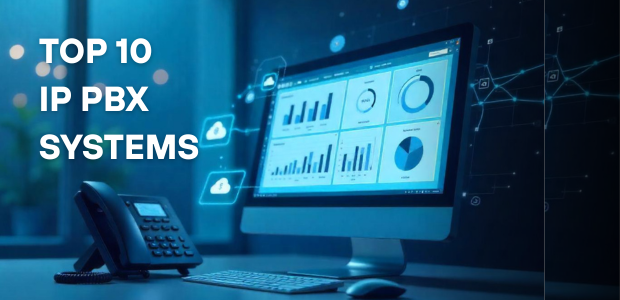Comparing On-Premise vs. Cloud-Based IP PBX Systems

- December 25, 2024
- Interface Digital
In today’s fast-paced business environment, efficient communication is crucial. Internet Protocol Private Branch Exchange (IP PBX) systems are pivotal in streamlining business telephony solutions.
Businesses often face a choice between on-premise vs. cloud-based IP PBX systems. This blog explores these options, helping you determine the best fit for your needs.
Understanding Cloud-Based IP PBX Systems
Cloud-based IP PBX systems are hosted on remote servers and are accessible via the Internet. They eliminate the need for extensive hardware on-site, making them a preferred choice for modern, agile businesses.Key Features
- Remote Accessibility: Employees can login from any location that has access to the internet.
- Automatic Updates: All Software updates and automatic call distribution are managed by the service provider.
- Integration Capabilities: Easily integrates with other cloud-based tools like CRM and ERP systems.
Benefits of Cloud PBX
- Cost-Effectiveness: It avoids the requirement for an initial investment in hardware.
- Scalability: Cloud PBX expands or reduces capacity based on business needs without physical infrastructure changes.
- Ease of Maintenance: Cloud PBX is managed entirely by the service provider, reducing IT burdens.
Challenges
- Dependency on the Internet: Service reliability depends on a stable Internet connection.
- Repeated expenses: Monthly or annual subscription costs may add up over time.
- Data Security Concerns: Sensitive information is stored off-site, making security a critical factor.
Understanding On-Premise IP PBX Systems
On-premise IP PBX systems are installed and maintained within an organization’s premises. They provide a traditional yet reliable communication solution like interactive voice response (IVR), especially for businesses with specific needs or security concerns.Key Features
- Physical Control: Hardware and servers are located on-site, giving full control over the system.
- Adaptability: Highly adaptable to fit specific business needs.
- No Internet Dependency: Calls within the network do not rely on Internet connectivity.
Benefits
- Enhanced Security: Data is stored locally, minimizing risks associated with external threats.
- Long-Term Cost Savings: Once installed, operational costs are limited to maintenance.
- Reliable Connectivity: No dependence on external servers ensures consistent service.
Challenges
- High Initial Costs: Significant investment in hardware, installation, and setup.
- Maintenance Responsibility: IT teams must handle regular updates and troubleshooting.
- Limited Scalability: Expanding capacity requires additional hardware investment.
On-Premise vs. Cloud-Based IP PBX Systems: A Detailed Comparison
1. Setup Process
- Cloud-Based IP PBX: Quick setup as most of the infrastructure is hosted remotely. Businesses can be operational within hours.
- On-Premise IP PBX: Time-intensive installation process requiring hardware setup and configuration.
2. Costs
- Cloud-Based IP PBX: Subscription-based model with predictable monthly fees, reducing initial capital expenditure.
- On-Premise IP PBX: High upfront costs for hardware and installation, but lower long-term operational costs.
3. Scalability
- Cloud-Based IP PBX: Effortlessly scalable to adapt to growing or shrinking business needs.
- On-Premise IP PBX: Scalability requires physical upgrades, which can be costly and time-consuming.
4. Flexibility
- Cloud-Based IP PBX: Ideal for remote workforces with multi-location capabilities.
- On-Premise IP PBX: Best suited for businesses with fixed office locations and controlled environments.









